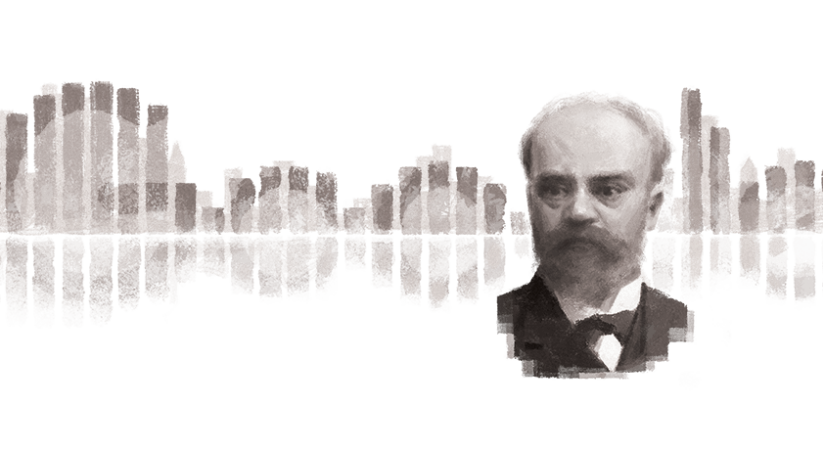Today’s Doodle celebrates Czech composer and musician Antonin Dvoák. He was born on this day in 1841 in Nelahozeves, which is near Prague.
Growing up, Dvoák was fascinated by his father’s musical skills. He used a zither, a stringed instrument, which inspired young Dvoák to dabble with music. He discovered a music teacher at the age of twelve who urged him to study the basics of the violin, piano, organ, and music harmony. He also started composing his first musical works. His tutor convinced his parents to send him to music school after realising that music was his strength, and in 1857, Dvoák was off to Prague Organ School.
He was an excellent organist when he graduated and started his career. He became a violist in the symphony and additionally gave one-on-one piano lessons. He wrote operas, symphonies, and chamber music, and in 1873, his hymn The Heirs of the White Mountain, brought him fame in Prague. Additionally, he started playing the organ at St. Adalbert’s Church and entered several of his own works in musical competitions.
The music publisher who ordered Slavonic Dances was introduced to Dvoák by one of the judges who gave him the prize in 1875. As a result, Dvoák became well-known throughout Europe and received other commissions, including those for Moravian Duets, Symphony No. 7 in D minor, and Saint Ludmila, an orchestral composition. He received honorary doctorates of music from the universities of Prague and Cambridge following a number of successful performances in his own country and England.
He was given the opportunity to lead the National Conservatory of Music in New York City in 1892. He was inspired by the Black and Native American music there to compose Symphony No. 9 From the New World, one of his most well-known works. Fun fact: Astronauts later, in 1969, took this object to the moon! Additionally, this Symphony’s Carnegie Hall premiere was 130 years ago this year.
After spent around three years in America, Dvoák returned to Prague and took over as the conservatory’s director, passing on his expertise to upcoming composers from the Czech Republic. His attention turned to operas in his later years, and in 1901 he debuted Rusalka, a musical fairytale that has enjoyed a century of global renown.
Dvoák is regarded as one of the first Czech composers to achieve international renown and is best known for his romantic music infused with folk influences. Cheers to Antonin Dvoák’s birthday!
- Porsche Tennis Grand Prix 2025: When and Where to Watch Coco Gauff - April 14, 2025
- How to Watch World Team Trophy Figure Skating 2025 from Anywhere - April 14, 2025
- How to Watch ICC Women’s T20 World Cup Online in 2025: Complete Guide - April 14, 2025





